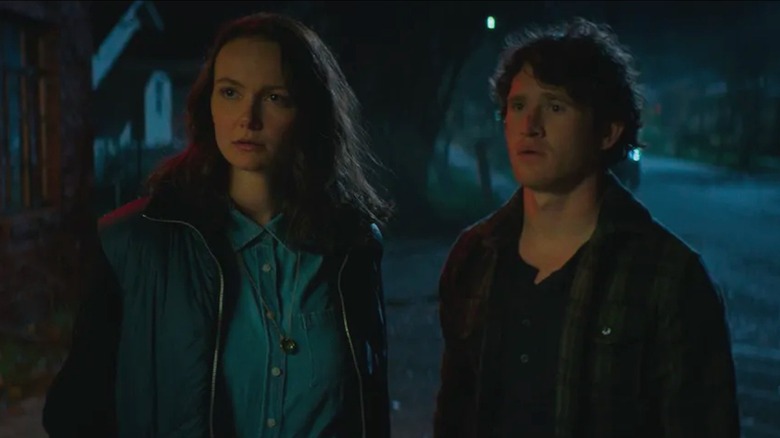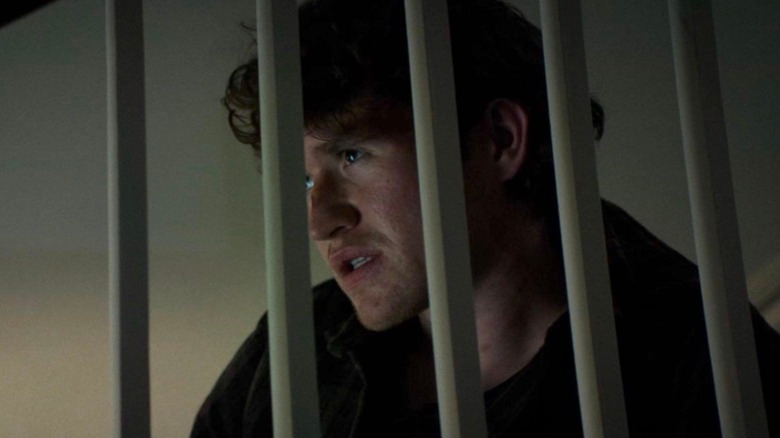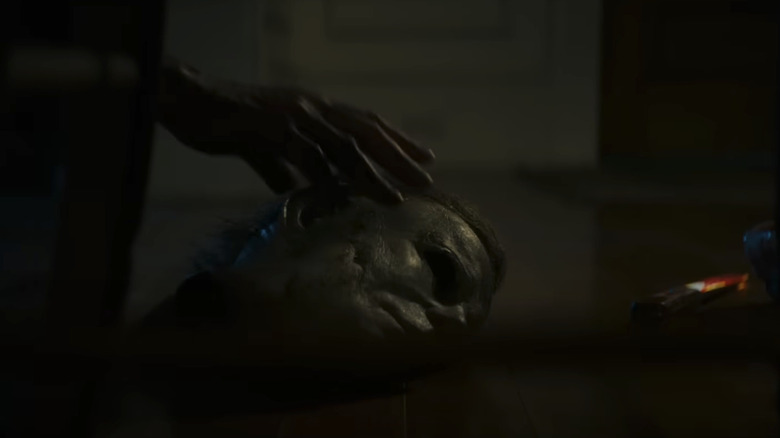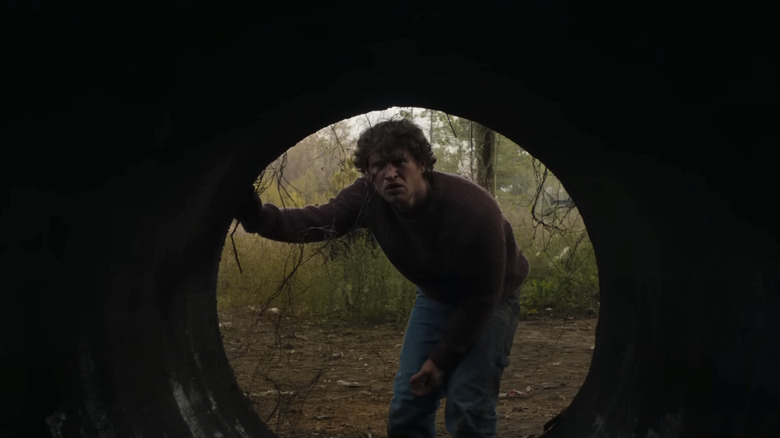Why David Gordon Green Created That New Character In Halloween Ends
The conclusion to David Gordon Green's ambitious reboot/revival of the beloved boogeyman slasher is finally here — "Halloween Ends" releases in theaters (and on Peacock) today, and the critical response to the film has already been divisive to say the least.
Green's Blumhouse-produced trilogy started off with an impressive bang with 2018's "Halloween," in which we revisited Haddonfield with an older, paranoid version of Laurie Strode (Jamie Lee Curtis)and her troubled family. The second entry, "Halloween Kills" was met with much more disdain. Lacking urgency and thematic consistency, the sequel stumbled on its broad exploration of festering anger and mob mentality. One thing we can't fault "Halloween Ends" over, despite its obligations to "end" an uneven trilogy, is its willingness to try even more interesting things.
"Halloween" has always been a weird and inconsistent franchise. The concept of John Carpenter's original film is so simple and minimalistic; as a result, many attempts at expanding on its lore or opening the world and characters up have been met with controversy. How do you innovate Michael Myer's without ruining the mystique?
Green's answer to this sequel dilemma lies in a brand new character for "Halloween Ends," Corey Cunningham, played by Rohan Campbell.
If you haven't seen the film yet, there are minor spoilers for "Halloween Ends" ahead.
Halloween Ends' new character, Corey, is on a dark path
Despite his lack of presence in marketing and trailers, Corey Cunningham is one of "Halloween Kills" main protagonists and a central focus of the film. Haunted by his past and an "othering" by the fear-driven community of Haddonfield, he meets Laure's granddaughter, Allyson (Andi Matichak) and the two relate over their shared ostracization. As the film progresses, a romance blooms between the two.
It might not initially click to the viewer why this love story is at the heart of what is supposed to be the final battle between Laurie and Myers, but as Corey descends down a darker path, it becomes crystal clear why Green is so invested in his story. If Green's "Halloween" trilogy is about the manifestation of evil, Corey is his surrogate to explore how evil is passed down through generations.
"After the success of our 2018 film, we knew where we wanted to go vaguely," Green told the A.V. Club, adding:
"I knew that I wanted to center the second film around a lot more action and aggression. And then I wanted the third film to be a love story that felt more grounded and intimate."
Corey serves as a character foil to Michael Myers
One of the core franchise beliefs Green seems to agree with "Halloween" fans about is that any sort of backstory for Michael Myers is simply off the table. Myers defies humanity as a nearly indestructible specter of violence and evil. Green expresses, "you're not going to go into a Michael Myers backstory because as far as I'm concerned, that's forbidden territory. I don't want to know his motivation, what inspires him."
In his pursuit of prying away at what motivates Myers, while still avoiding coloring in his origin, Green finds an alternative in Corey Cunningham's gradual acceptance of his evil, murderous instincts.
"I do ask a lot of questions about evil and community that have been left in the aftermath of the Haddonfield massacres. So trying to find a way to ask these questions, but not [doing that] through Michael Myers insisted I bring in a new character to give a perspective of Michael and his behaviors, Laurie and her insights, and then Haddonfield as a whole."
Corey raises questions about Michael Myers without revealing his backstory
It's crucial to make the distinction that while Corey is Green's experimental surrogate to pick away at the psychology of Michael Myers, Corey's actual character is still far from Myers in many ways and it's never the film's intention to pass the mantle onto him.
When in killing mode, he's far less confident and physically strong than Myers, even distinctly clumsy. His bad romance with Allyson gives him a layer of humanity and desperation that Myers does not possess. No, Corey is not the "new" Michael Myers. But one has to wonder, was Myers once a troubled boy like Corey? Is Corey's instability dooming him to become like Myers? Did Haddonfield's small-town mindedness create Myers in the way they created Corey?
Whether or not David Gordon Green's approach to asking these questions works is up to you. "Halloween Ends" isn't a home run, but it's at least going to enable more engaging debate and discussion amongst Horror fans like all other "Halloween" sequels have been for years. That is where Green's trilogy stays in true franchise tradition.



